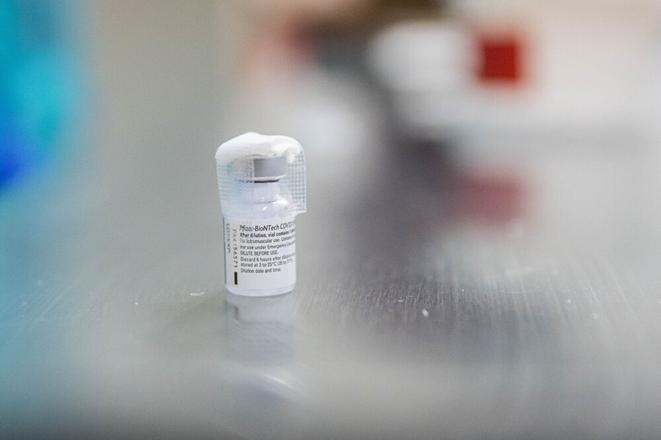Vaccination against COVID-19 is now available for people over the age of 75 in Slovakia.

Applicants can either fill out a form on korona.gov.sk or they may place a call to the call centre of the Health Department by calling 0800 174 174 if they wish to apply by phone. Applicants may also be registered by their relatives or their medical practitioner.
Health Minister Marek Krajčí (OĽaNO) also noted that there are plans to open large capacity vaccination centres once enough vaccines are available.
“Every week we increase the size of our network and capacity and we’re improving our services for you. This is also why we’re extending the group of valid applicants to now include seniors at the age of 75,” Krajčí wrote on his Facebook page.
Making the vaccination available to people older than 75 marks the start of the third phase of the vaccination programme, as presented by the ministry earlier in January. After various health care groups and social workers in the first phase and people older than 85 in the second phase, the possibility now extends to more people. It is not clear when the next phases will begin.
After the start of the vaccination rollout in Slovakia on December 26, the minister pledged that nearly 80 vaccination points would open around the country, one per district. So far only about half of them have been put into operation. Currently, 37 vaccination centres are at work. In addition, 17 mobile vaccination teams for seniors in social care facilities are operating around the country.
Krajčí noted that Slovakia ordered over 15 million vaccines this year, plus another 4.8 million from manufacturers whose vaccines are yet to be clinically certified.
Slovakia is due to vaccinate 102,692 residents by February 2.
11 phases
Phase 1:
healthcare staff;
students of medical or non-medical school who are in contact with COVID-19 patients;
nursing home staff;
in-field social workers;
employees of service organisations that secure services in hospitals;
employees of hospitals, emergency rescue services and ambulances who are in contact with COVID-19 patients;
registered Church members who offer clerical services to COVID-19 patients in hospitals or nursing homes;
staff at mobile testing sites who are in contact with tested people.
If people booked for the given date fail to show up, the authority responsible for vaccination can take replacements, giving preference to people older than 65 years of age.
Phase 2:
people older than 85 years of age
Phase 3:
people older than 75 years of age
Phase 4:
people older than 65 years of age
Phase 5:
people suffering from serious diseases regardless of their age, including:
*cancer patients;
*people who had transplantations;
*people who recovered from pneumonia;
*people who had sepsis;
*people with cardiovascular problems;
*people suffering from diabetes;
*HIV/AIDS patients;
*extremely obese people;
*patients suffering from kidney failure, serious immunity diseases or metabolic problems;
*people suffering from serious mental problems.
Phase 6:
people suffering from moderate chronic diseases
Phase 7:
teachers older than 55 years of age
Phase 8:
people older than 55 years of age
Phase 9:
other teachers
Phase 10:
people older than 45 years of age
Phase 11:
people older than 18 and younger than 45 years of age



 The Comirnaty vaccine. (source: Sme - Marko Erd)
The Comirnaty vaccine. (source: Sme - Marko Erd)